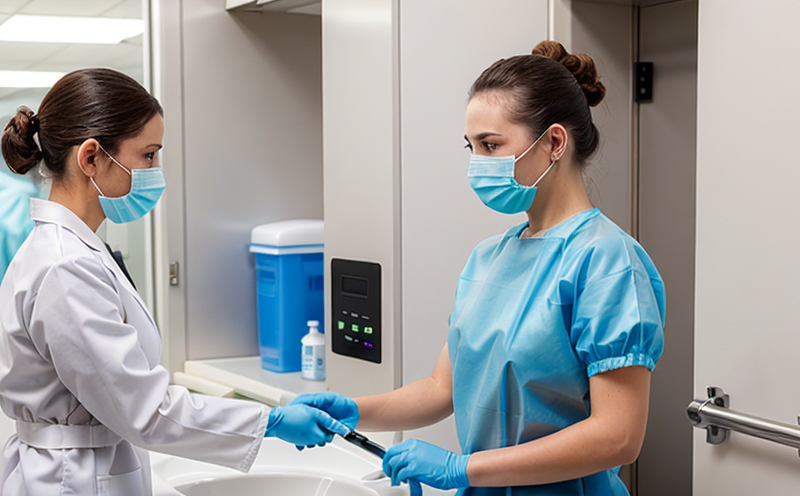GB T 20944 Antibacterial activity of textile products
The GB/T 20944 standard is widely recognized in China and internationally for its stringent requirements on the evaluation of antibacterial activity in textiles. This test method assesses the ability of a textile product to inhibit bacterial growth, ensuring that textiles meet strict hygiene standards. The standard applies to various types of fabrics such as clothing, medical textiles, home textiles, and industrial textiles.
The primary goal of this testing is to provide reliable data for manufacturers and buyers regarding the antibacterial performance of their products. This ensures consumer safety by preventing the spread of infectious diseases through contaminated textiles. The test protocol involves inoculating textile samples with specific bacterial strains under controlled conditions and measuring the extent of inhibition after a predetermined incubation period.
GB/T 20944 specifies detailed procedures for sample preparation, inoculation methods, incubation times, and measurement techniques to ensure consistent results. Compliance with this standard is crucial for companies aiming to meet regulatory requirements in China and other markets that recognize the GB/T series of standards. Non-compliance can lead to product recalls or legal issues.
The test method also considers factors such as the type of bacteria used, the concentration of the textile sample, and environmental conditions like temperature and humidity. These parameters are critical for accurate results, ensuring that the antibacterial efficacy is measured under realistic conditions.
For R&D engineers, understanding these nuances allows them to optimize product formulations and manufacturing processes. For procurement officers, knowing about this standard helps in selecting suppliers who adhere to high hygiene standards. Quality managers can use this information to ensure their products meet regulatory requirements and customer expectations.
Industry Applications
- Clothing manufacturers ensuring hygiene for hospital gowns and uniforms
- Medical textile producers verifying the safety of surgical drapes and bandages
- Home textile companies guaranteeing the cleanliness of towels, bedding, and upholstery
- Industrial fabric suppliers confirming the sanitization properties of workwear and protective gear
Customer Impact and Satisfaction
Adhering to GB/T 20944 standards not only enhances product quality but also boosts customer satisfaction. Consumers prefer products that are safe from microbial contamination, especially in healthcare settings where hygiene is paramount. By meeting these stringent standards, manufacturers can build trust with their customers and differentiate themselves in the market.
For end-users like patients, caregivers, or industrial workers, knowing that textiles meet high antibacterial standards provides peace of mind. This leads to increased loyalty and repeat business for compliant companies. Additionally, compliance with international standards such as GB/T 20944 can open up new markets in China and other countries where these standards are recognized.
Quality managers benefit from this testing by having clear data that supports decision-making processes. They can use the results to improve product formulations or adjust manufacturing practices if necessary. Compliance officers also find value in knowing that their products meet regulatory requirements, reducing the risk of non-compliance penalties.
International Acceptance and Recognition
The GB/T 20944 standard is not only recognized within China but also internationally. Many countries look to Chinese standards for guidance in hygiene testing, especially when it comes to textile products. This recognition extends to international buyers who prioritize safety and quality.
ISO (International Organization for Standardization) and other global bodies often reference GB/T 20944 as a benchmark for antibacterial activity tests. By aligning with this standard, manufacturers can ensure their products meet the expectations of both domestic and international markets. This harmonization reduces confusion and simplifies compliance across borders.
Recognizing the importance of global standards, many textile producers invest in facilities capable of conducting GB/T 20944 tests. This investment demonstrates a commitment to quality and helps maintain competitive edge in the global market. Compliance with such rigorous standards also enhances brand reputation and fosters long-term relationships with customers.





